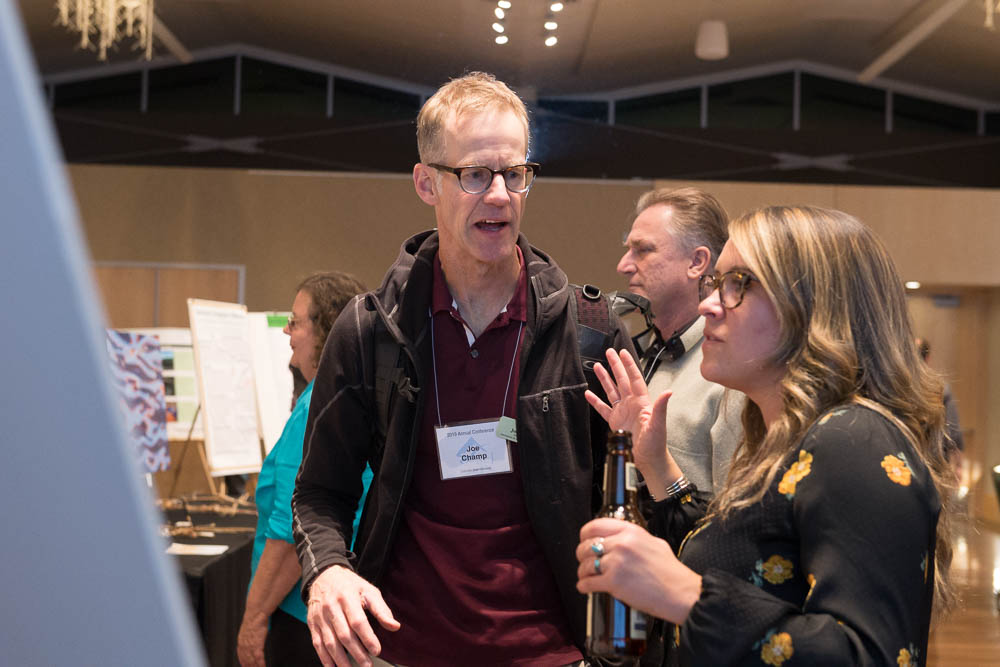
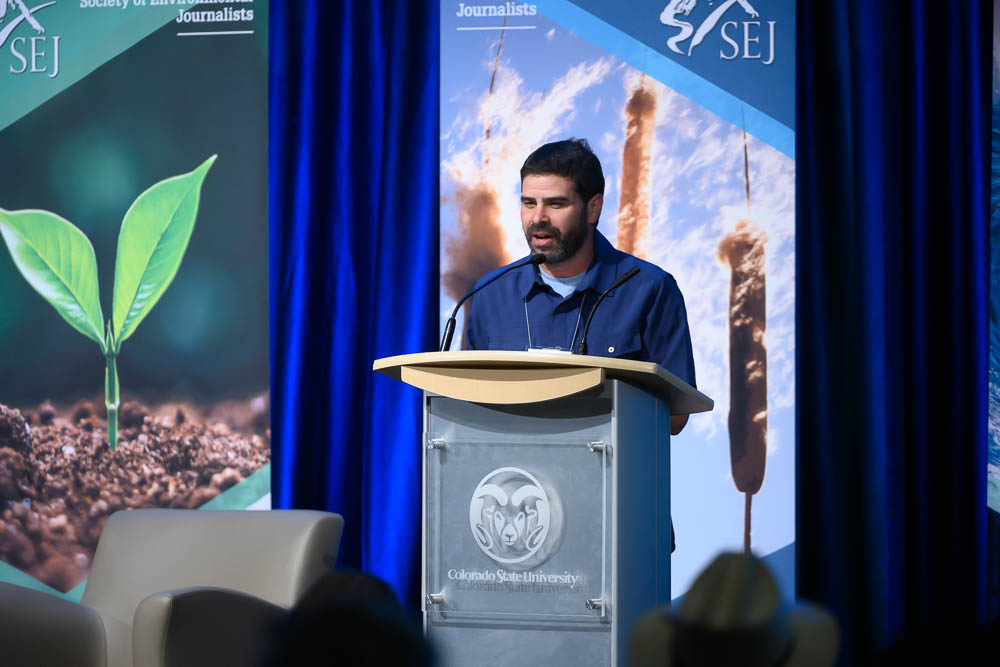
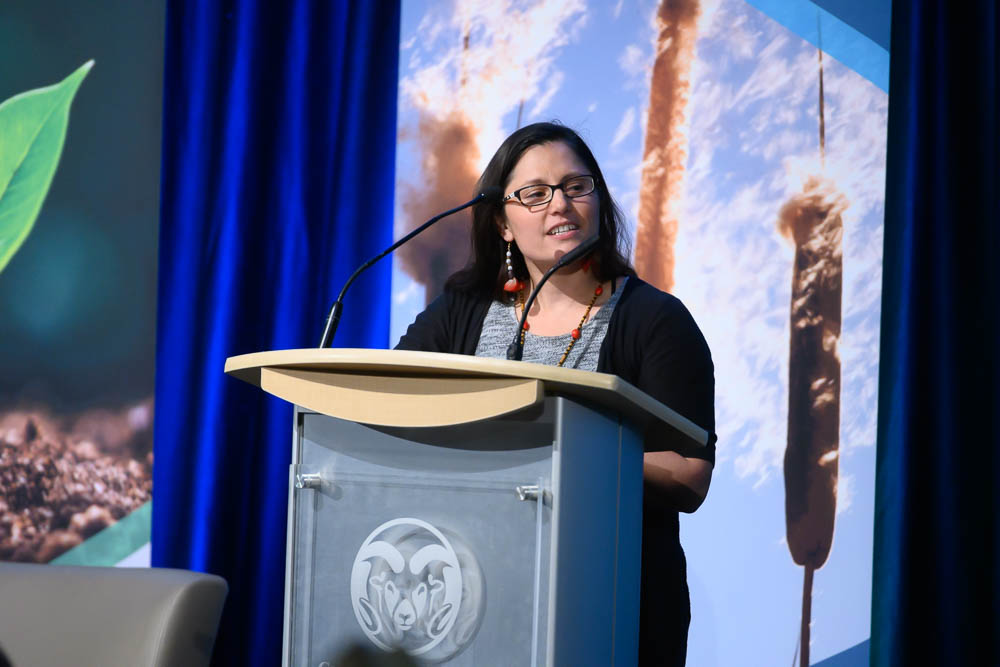

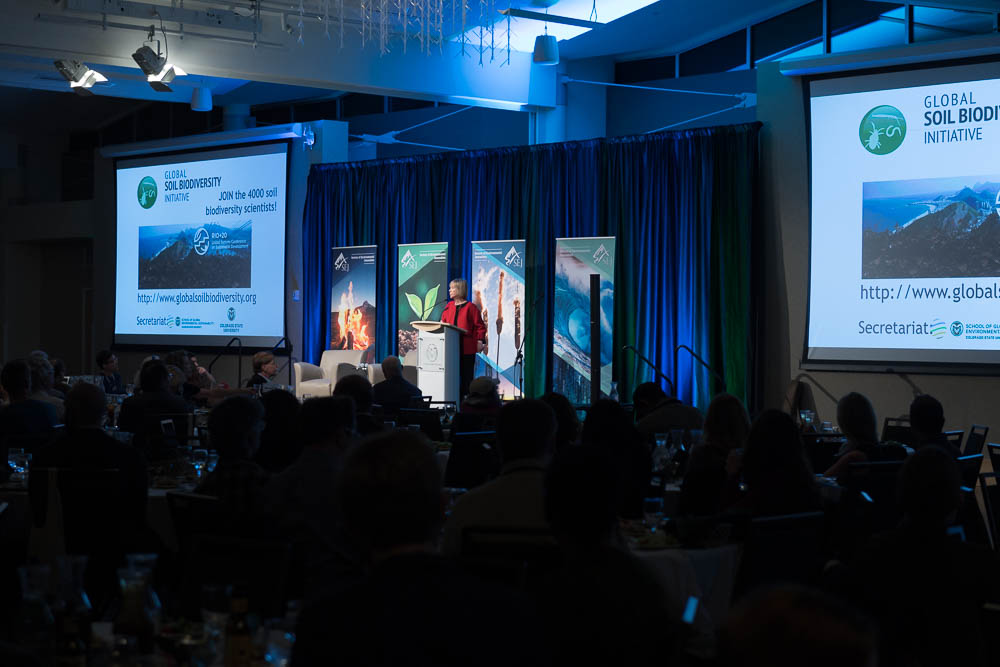
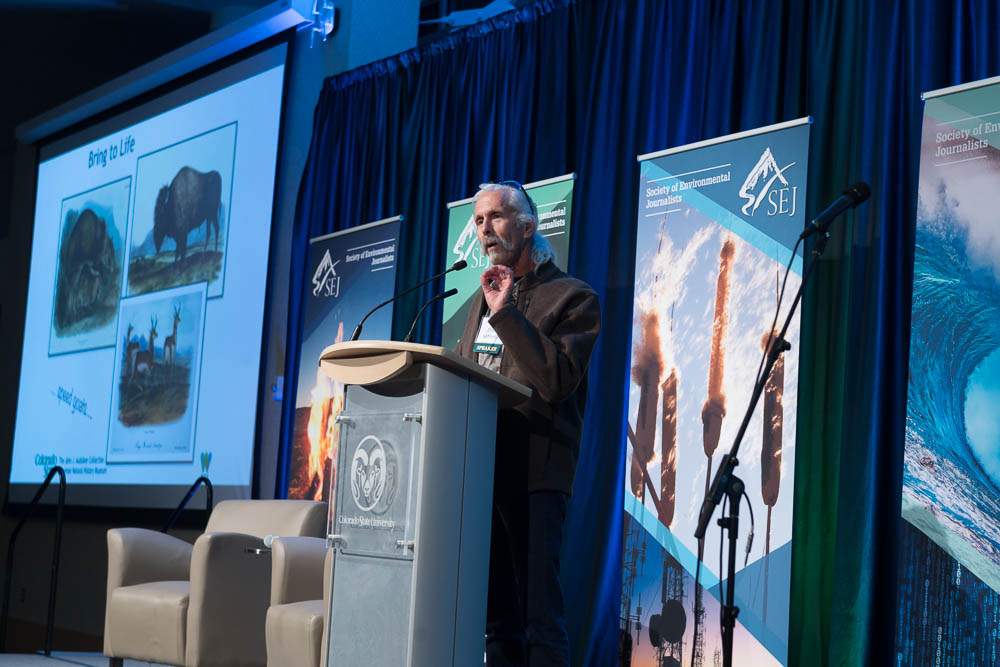
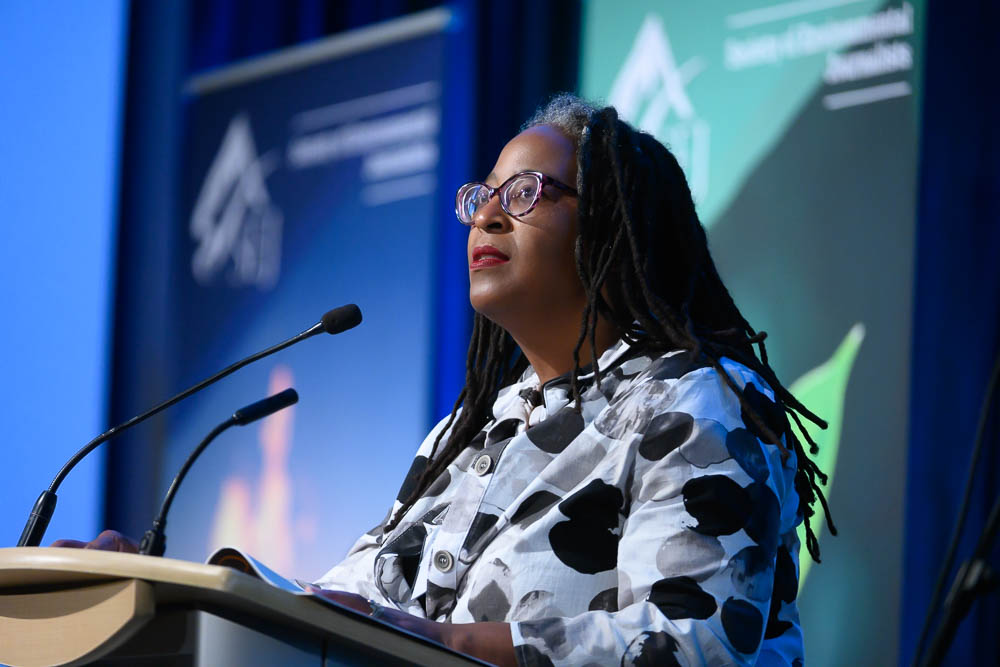
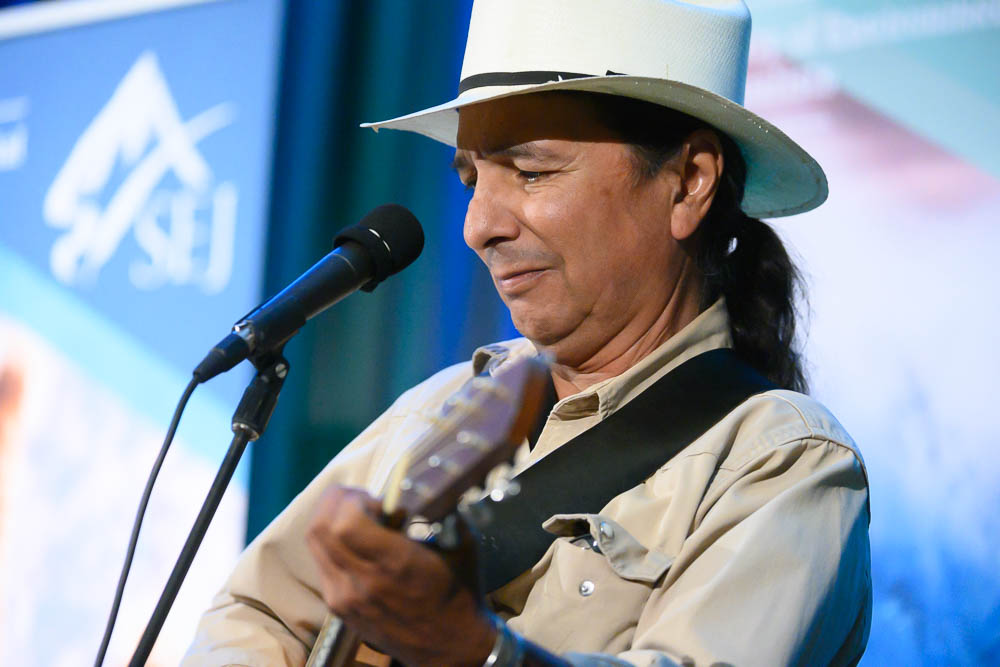
The opening of the 29th Society of Environmental Journalists Conference at Colorado State University also featured about a dozen student research posters a student newsroom under the direction of journalism professor Joe Champ. CSU journalism instructor Josh Zaffos co-chaired the conference and shared emcee duties with co-chair Susan Moran. Warner College of Natural Resources faculty member Dominique David-Chavez delivered the CSU Land Acknowledgement, while professors Diana Wall and Joel Berger highlighted their research into the effects of climate change. English Professor Camille Dungy read a poem to thank the journalists for their important work, and local blues guitarist Cary Morin, a member of the Crow tribe, provided musical interludes. Photos by William A. Cotton, CSU Photography
“Wherever you go in the world, it’s likely you’ll find a Ram researching or teaching about environmental issues.”
– Colorado State University Provost Rick Miranda
Colorado State University welcomed the 29th annual conference of the Society of Environmental Journalists to campus Oct. 9 with an afternoon event that segued into dinner and a program that showcased CSU research on all seven continents of the Earth.
From Professor Joel Berger’s work with “silent species” in the Arctic facing climate disruption to University Distinguished Professor Diana Wall’s research in the Antarctic on the effects of warming soils on biodiversity, and Professor Kathleen Galvin’s ongoing relationship with pastoral peoples in East Africa as they adapt to changes in the land and wildlife that have supported their way of life for generations, the 300 attendees heard highlights of just a few of the environmental fields where CSU faculty are doing groundbreaking science.
SEJ conference
About 700 people have registered to attend this year’s SEJ conference, according to organizer Jay Letto. They have a full schedule of events, workshops, tours and field trips scheduled on campus through Saturday evening. CSU President Joyce McConnell will provide remarks at the opening plenary on Friday morning.
Provost Rick Miranda shared the statewide, nationwide and global reach of Colorado State’s environmental work through all of the University’s eight colleges as well as accolades such as achieving a STARS platinum rating twice.
“We consider the entire state of Colorado as our campus,” he said, citing Extension work in all 64 counties as well as Agricultural Experiment Stations and research campus from the mountains to the plains and the fertile valleys of the state. “Our ecological and environmental curriculum is comprehensive, and our faculty and students are as passionate about the subjects you cover as you are.”
Importance of language
The editors, reporters, freelancers, publishers and academics also heard from Camille Dungy, CSU English professor, poet and recent recipient of a Guggenheim Fellowship, who read a poem about a historic migration of swallows “as a thank you for your excellent journalism,” and from an essay that discussed the importance of the language we use to describe and name the world correctly.
The theme of the importance of language and names continued throughout the program. Dominque David-Chavez, a faculty member in the Warner College of Natural Resources from a multicultural Caribbean Indigenous (Arawak Taíno) background, in preface to delivering CSU’s Land Acknowledgement, said that although her Google calendar tells her Oct. 14 is Columbus Day, she will be celebrating Indigenous Peoples Day.
“We will be celebrating our opportunities to write our own histories, and to think about what all of history would be like if this had not become ‘the New World,’” she said. “What innovations and knowledge would have flourished? Would ‘sustainability’ be a new concept? Our ancestors had been sustaining health lifeways for generations before we discovered Christopher Columbus.”
She added that the Land Acknowledgement is just the beginning of Indigenous peoples reclaiming their untold stories.
Autumn Bernhardt, an instructor in the CSU Department of Anthropology and Geography as well as a poet, shared her take on the local issues not being covered by the media during the Standing Rock protests in a poem called, “Manifest Destiny This Week,” that concluded that while the terms used in the 21st century are not the same as those used in the 19th century, the effects of land appropriation remain the same.
Throughout the presentations, which also featured music from Fort Collins blues guitarist Cary Morin, speakers expressed gratitude for the work SEJ members and other journalists do to bring attention to issues affecting the health of the planet, and the work being done on those issues, especially in the current global political climate.
“Today, when confidence in science is at risk, we have never needed you more,” said Miranda.